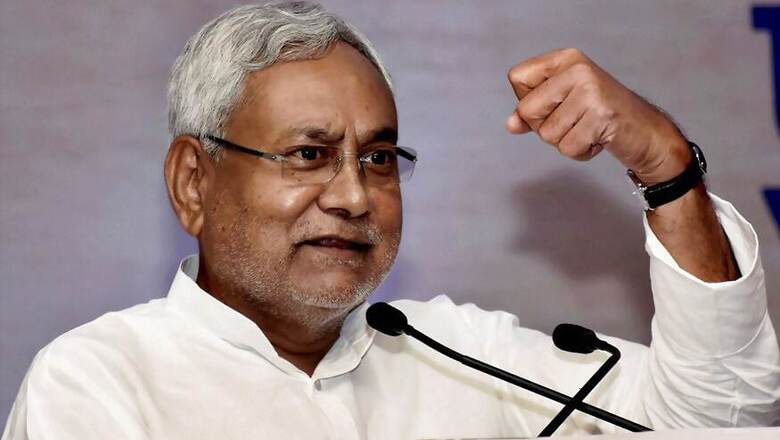Opinion | Under Pressure From Allies, 'Draconian' Clauses of Nitish's Prohibition Ban to Get the Axe

views
New Delhi: Seemingly under pressure from his allies and after examining the socio-political ramifications of the two-year old total prohibition in Bihar, Chief Minister Nitish Kumar decided to tone down some of the stringent provisions of the Bihar Prohibition and Excise Act, 2016.
The proposal to amend the law, based on the recommendations of the experts committee and okayed by the law department, was passed by the cabinet and now the amendments will be introduced in the monsoon session of the Bihar legislature and then referred to the Governor for his nod.
The message was clear: the government realised that even though the prohibition brought a “silent revolution” in the countryside, it had adverse and negative effect too in the same society. The stringent provisions of the act were once termed as “draconian” by the BJP, which was not an ally of Nitish when the Act was passed in April 2016.
The Nitish Kumar government realised that it was about time, months before the crucial Lok Sabha polls, to give some relief to the common people.
The reports in the media as well as those coming through various official sources were highly disturbing. Over 1.15 lakh people were arrested for violation of the law and majority of them, nearly 90 per cent, belonged to Dalit and extremely backward classes. This gave an opportunity to former CM and Mahadalit leader Jitan Ram Manjhi to accuse the government of using the law as a tool to harass the poor people and demanded a complete overhauling of the Act. JD(U)’s secretary general KC Tyagi too acknowledged that the number of accused from the weaker sections was a “matter of concern”.
Nitish, who boasted of the fact that he was encouraged by the women to impose total prohibition, would say that poor people had benefited the most from the ban and rural society underwent a big societal change. There was peace and the money spent on booze was being spent on more positive things like purchasing household articles, clothes, sweets and milk. Some agencies studied the situation and came up with statistics favouring what the CM has claimed.
But the ground reality was different. The rural people who could not give up their drinking habit were getting the liquor, including hooch and surgical spirit, through various illegal means at a higher price, and were abusing the administration for the ban on the other hand. The flow of liquor smuggling from neighbouring states and from Nepal increased manifold. There were constant reports of the smuggled liquor being confiscated. Sources said those reports were just the tip of the iceberg as only a few consignments were caught and majority of them reached their destination unchecked. Sources said even senior police officials were hands-in-glove with smugglers and bootleggers.
“Stopping liquor smuggling is next to impossible for any government and prohibition cannot be termed successful with a parallel economy of bootlegging,” commented former Chief Secretary VS Dubey, who believed that prohibition has produced a new generation of criminals.
The JD(U) which contested one assembly by-election during this period under pressure from the BJP lost badly. In Jehanabad, the party’s defeat was said to be mainly because of the drinking ban and people, mainly Dalits and EBCs who faced the brunt of the prohibition law, united, not on political lines but to teach the law enforcers a lesson, to convey the message to the ruling alliance. A Dalit legislator confessed that he faced hostility in the villages he visited.
(The writer is a senior journalist. The views expressed are personal)




















Comments
0 comment